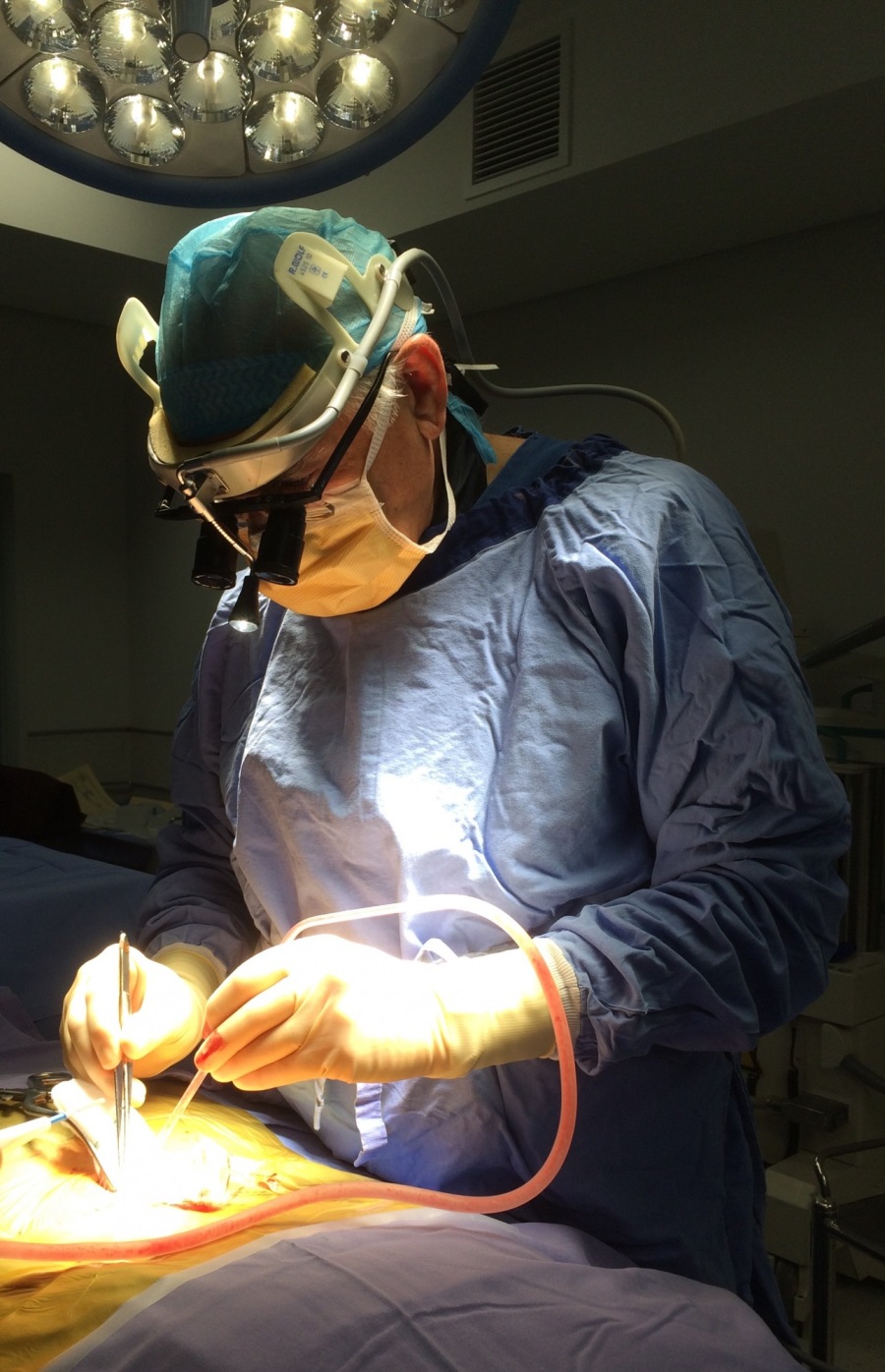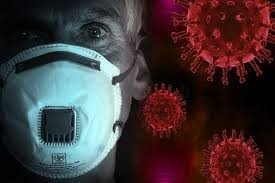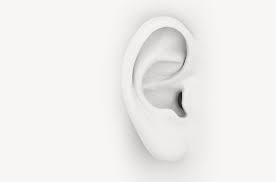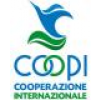A Case Study Illustrating the Effectiveness of Neurosurgery for a Brain Tumour Followed by Intense Neuro-Coaching

Jenny presented to me several years ago with the main complaints of headaches and vertigo. The symptoms had been present for a period of three months and were deteriorating. An MRI scan was performed which revealed a large posterior tumor which was infiltrating the transverse sinus. There was significant compression of the cerebellum. The diagnosis was particularly devastating for Jenny. She was a high level executive and at the age of fifty one had very rarely been ill. The diagnosis as well as the planned surgery necessitated an in-depth discussion to prepare the way for formidable surgery.
During the discussion, Jenny enquired as to what the cause was for the growth of the tumour. I indicated that in the context of the conventional biomedical model there was no specific cause that could be identified. However I indicated that in the sphere of psychoneuro-immunology (PNI) negative neuropsychological influences had been identified which resulted in chronic inflammation in the body together with immune suppression, mediated by a group of chemicals referred to as the pro-inflammatory cytokines. The immune suppression compromised the body’s defences against infections and tumours. The chronic inflammation had also been shown to be the initiating factor in coronary artery disease, diabetes, cancer and some neurodegenerative conditions such as Alzheimer’s Disease and Motor Neuron Disease. The pro-inflammatory cytokines however not only mediated the chronic inflammation and immune suppression but also interfaced with the neurophysiology of the brain, further aggravating a negative neuropsychological state.
Jenny requested that I summarize the identified neuropsychological states which created the illness risk. I indicated that on the positive resourceful side was a mind state of meaning and purpose while on the negative side was a mind state of hopeless-helplessness which, if persistent for a year or more (in my experience), often gave rise to a medical diagnosis. The concept of hopeless-helpless implies a life situation with low meaning and purpose and the subjective belief that it cannot be changed - an entrapment situation.
Jenny indicated that she indeed devolved into a mind state of hopeless-helpless over the preceding one and a half years in her work environment. Enthusiasm had waned and she no longer derived adequate gratification from her work environment. I enquired about her personal space and here emerged a very troubled picture dating back to her nurture period. At this point I indicated to Jenny that we would need to prioritize the intervention by initially directing our energies towards the planned surgery. Once she had fully recovered from the surgery we could initiate an intense coaching intervention to expose and deal with the negative neuropsychology which had most likely impaired her immunity and allowed the tumour to grow unchecked.
The surgery was difficult in that the tumour turned out to be an aggressive meningioma which had infiltrated the transverse sinus. It had also infiltrated the superficial layers of the cerebellum. The transverse sinus was incised and all tumour removed. The cerebellum was also cleared of all infiltrating tumour. Essentially a total removal was achieved. The surgery was uneventful and Jenny made a full recovery without neurological deficits.
After a period of six weeks we commenced the neuro-coaching intervention. This took the form of neuromodulation (NeuroSurge form of neuro-coaching). Jenny initially completed the online NeuroSurge diagnostic. This formed the basis for the planned intervention. The diagnostic indicated that although Jenny had the motivation and necessary attributes for her work environment, there was a distinct lack of gratification and fulfilment. In addition there were indications of a diminished self-worth. More importantly her personal space was almost devoid of gratification. There was also a strong suggestion that there was a deep seated issue relating to probable nurture deprivation. Jenny indicated that she had been divorced for two years. I responded that our statistics had shown that in a woman, the subjective feeling of hopeless-helplessness in the personal environment had a higher risk for the development of a medical diagnosis than hopeless-helplessness in the work situation. The opposite held true regarding the male of the species. In the male, hopeless-helplessness in the work environment posed the higher risk for the development of a medical diagnosis. I asked Jenny if she felt that her divorce had contributed to her negative mind state. She replied that if anything, her divorce had been a release from an oppressive and unfulfilling marriage. It became clear that we needed to penetrate a lot deeper into the personal space, all the way back to the nurture environment. And it was here that, after several sessions, we uncovered the critical determinants for her high risk mind state.
Her mother had been extremely cold and non-responsive to her emotional needs. Her father had been an alcoholic and very distant. In an attempt to gain maternal recognition she adopted compensatory behaviour such as serving the needs of her mother and later, taking care of younger siblings. However, all to no avail. Her subjective reality that was forged was one characterized by the need for driven compensatory activity. Appended to this however was sadness and distrust which resulted from never having experienced true recognition for her needs as a young child requiring love and nurture. In its essence, the evolving narrative incorporated the damaging theme that she believed she was born never to experience personal gratification. She also believed that she was born to serve the needs of others. This obviously resulted in a low self-esteem. Her compensatory behaviour drove her always to overcompensate in order to gain recognition. Ultimately this resulted in an extremely successful career but with the nurture baggage of her personal space. The bizarre situation emerged that in a compensatory, successful career she was confidant and for the most part, highly fulfilled. But when she viewed her personal space she experienced the low self-esteem, worthlessness and hopeless-helplessness which was the subjective world of the little girl who had never experienced the love and warmth of nurture. Both worlds co-existed but were un-integrated. In fact when I brought them both into focus for the first time (integration) she felt guilt that she (the successful adult) had experienced gratification and recognition while the sad little girl continued to suffer. Consequently there followed sessions directed at establishing dialogue between the successful woman and the suffering little girl. This intervention however was unsuccessful. The breakthrough only came much later. Jenny in a sudden cathartic moment came to a realization that she did not need to carry the suffering little girl with her any longer. She had given herself permission to savour all that she had become and all her achievements. And so the toxicity of the nurture deprivation evaporated.
On reviewing the possible dynamic which had led to the hopeless-helplessness preceding the diagnosis, Jenny believed that losing meaning and purpose in her compensatory world was lethal in the face of the absence of gratification in her personal space. It became clear therefore that the definitive intervention would need to restore meaning and purpose in the work environment and thereafter apply the gratification derived from a restored work environment to creating a gratifying personal space. Jenny therefore established a personal mission statement as well as strategies required to achieve the relevant goals using the NeuroSurge online self-coaching template (E-Modulate). It was important to ensure that the five core elements known to enhance change, were incorporated viz. meaning and purpose; self-esteem/self-efficacy; reward gratification; achievement; value contribution (to self and the environment). It was important also to maximize on areas of previous achievement and gratification as well as personal strengths and unique attributes. Working within this framework we re-structured her work environment and then transplanted the positive and resourceful attributes from this environment into her personal space. This necessitated expanding the personal mission statement and neutralizing previous limiting beliefs using a process of disputation. Finally, Jenny was coached to be empowered to apply this process to herself on a regular basis and to make changes as required in order to maintain optimal levels of gratification in both her work and personal environments.
Jenny has been followed up now for a period of four years since her surgery. She has effectively re-structured her work and personal environments which have now become integrated. She experiences ongoing gratification from these environments. Her follow up annual MRI scans have shown no recurrent growth of her original tumour.
Further reading:
http://www.neuronostic.com/PromoSurge.pdf
http://www.pninet.com/articles/Surge-app.pdf
http://www.pninet.com/articles/Memory.pdf
Copyright reserved - Ian Weinberg 2016
"Articles from Ian Weinberg
View blog
So there was this virus that originated in Wuhan and spread around the globe. The virus differed fro ...

I guess this Annus Horribilis can be characterized as the year of shock and awe! Unpredictable event ...

One of the most important clinical paradigm shifts in our time has been the realization that neuroch ...
Related professionals
You may be interested in these jobs
-
New Business Sales Executive
Found in: Talent ZA 2A C2 - 1 day ago
RecruiTech Gqeberha, South AfricaResponsibilities:Responsible for securing new clients within the corporate space · Ability to prospect effectively in order to secure appointments with qualified leads · Manage pipeline to ensure conversion rate is applied and revenue generated to reach targets · Plan & execute a ...
-

Warehous Managmente System
Found in: Talent ZA C2 - 2 days ago
Performit Personnel Port Elizabeth, South Africa Full timeWe are looking for an experienced WMS Analyst / Application Specialist for your client in Port Elizabeth. · The primary purpose of this role is to be responsible for all activities related to the Warehouse Management System (WMS). Responsibilities include but are not limited to e ...
-
Regional Program Manager
Found in: Talent ZA C2 - 3 days ago
COOPI Sandton, South AfricaCOOPI is looking for a Regional Program Manager in East Africa · The Regional Program Manager has responsibility at regional level, under the supervision and in cooperation with the Regional Coordinator, for the monitoring of active programmes in the countries of the Region. The ...



Comments
Cyndi wilkins
6 years ago #24
Brilliant idea! Medical office's could get the ball rolling here with a 'Staff Appreciation Day' by hiring a local therapist/or therapists depending on the size of your practice, to come in and offer 10 minute chair massage to the staff for all their hard work and dedication...Nothing paves the way for innovation better than the feeling of being appreciated...Simple ideas have a way of catching on... And this is exactly how you put 'eyes on it'....by having a conversation;-)
Ian Weinberg
6 years ago #23
Indeed. With current stresses I think the staff may require the massage before the patients!
Cyndi wilkins
6 years ago #22
You know...With the raising of awareness of the dangers of opioids and the many medications commonly prescribed for chronic conditions that could be better managed by seeking alternative treatments to toxic chemicals, many folks are beginning drive the market in that direction...People are sick of being sick. And doctors are not so quick to prescribe those pain meds anymore...and that's a good thing...But you are right, we do have a very long way to go... I always thought a well rounded medical practice should have a good massage therapist on staff;-) What do ya think? Instead of doctors relying on pharmaceuticals to treat your common ills...perhaps they could suggest you treat yourself by providing you with an alternative to the prescription pad;-)
Ian Weinberg
6 years ago #21
So true in many respects Cyndi wilkins It's important however to create a broad context so that we don't 'pour out the baby with the bath-water'! The scientific method of investigation - postulation, experimentation and review of the observations, has worked well for us. We have gained understanding in the workings of the body at the mechanistic level and produced drugs and other interventions which save many lives and improve the quality of life. HOWEVER, the medical profession has become stuck in its biomedical model to the point that it discredits 'inconvenient' yet validated modalities of intervention. Therefore, incorporating something like consciousness and PNI would threaten the comfort zone (After all, who wants conscious patients?). Here's one that you'll appreciate: The effectiveness of the placebo effect is about 40%. The placebo effect is mediated to a large extent by oxytocin. The average antidepressant (SSRI) is only about 10 -15% more effective than a placebo. Massage therapy releases oxytocin which would give us about 40% effectiveness. Add to this empathy and you've probably pushed the intervention up to and beyond the effectiveness of the expensive anti-depressants. And then of course 'consciousness' in a quantum domain is another whole variable, still to be addressed. Yes indeed, still much to do.
Cyndi wilkins
6 years ago #20
I think the tide is turning somewhat...Unfortunately those of us who operate from the perspective of having a deeper understanding of one's self are often seen as 'kooks' or charlatans in the scientific world because we do seek answers within the realms of the unseen...mind state being at the epicenter of our health and well being. The scientific world has long held the position of power and dominance within the physical environment and tends to be quick to disrupt anything that threatens it's survival with it's skepticism and blind denial of anything that does not fit neatly in that little 'square box' Ken Boddie speaks of. New ideas are suppressed for fear of what the establishment perceives as competition taking a bite out of their profits by teaching people how to better manage their health through lifestyle rather than managing illness through the use of pharmaceuticals...and the technologies are there to cure people of their cancers...but withheld for profitability...Cancer is a multi-billion dollar business. Free energy propulsion systems have already been developed as well, but the folks at the helm don't want 'the people' to know that either or we wouldn't need their dirty fuel oil anymore...which creates more sickness than you can shake a stick at. So you are right Ian Weinberg...It is up to us, 'the people' to wake up and realize we need not be slaves to a civilization that has kept us captive in a world full of conflicting information meant to confuse us into compliance. It is not my intention to create a conspiracy theory here...Just to state the truth as I perceive it...Perhaps it will strike a chord deep within the unsatisfied masses;-)
Ian Weinberg
6 years ago #19
Perhaps the unsatisfied masses need to become the pressure group that drives the profession towards greater enlightenment?
Ken Boddie
6 years ago #18
I suspected that you might be unique, Ian, and now I know so. Your post then subliminally throws out a challenge for all of us to think and operate outside our square of comfort and look at the bigger picture. 👍
Cyndi wilkins
6 years ago #17
#22 A plumber and an electrician for the body...Food for thought for the mind;-) What this world needs is more is medicine like you...Then maybe we can turn this ship around before it sinks. But if you are hard pressed to get the people in medicine on board, how the heck do we get through to the masses? Because that is what it is going to take...a major shift in consciousness for the masses...and we are running out of time.
Ian Weinberg
6 years ago #16
Thanks for that Ken Boddie It's very uncommon for a surgeon to wear these 2 hats. In fact, to my knowledge, I'm the only aberration of this kind that exists in the world today. It originates from the fact that my interest has always been in the thing called consciousness and its effects on body physiology (as well as in the quantum physics domain - but that's another whole story). So the integration of neuroscience with psychoneuro-immunology, PNI (the scientific study of the effects of neurophysiology on immune function) and its application in a clinical environment is very rare. The prevailing medical model is the mechanistic biomedical one which is basic physiology and pathology and what you see is what you get. There is no 'consciousness' factored into it. So fix the machine by removing the lump, unblock the pipes and kick-start the organs when they weaken. That's about it. Hope that gives you a perspective.
Ken Boddie
6 years ago #15
Cyndi wilkins
6 years ago #14
Ian Weinberg
7 years ago #13
Gerald Hecht Strangely, through most of my neuro training, the cerebellum was relegated to the function of motor function co-ordinator etc. It was only after I qualified that studies began to appear showing cognitive function in the cerebellum. And we're still so damn clueless about the 'wiring diagram'!
Ian Weinberg
7 years ago #12
Thanks Joyce \ud83d\udc1d Bowen
Joyce 🐝 Bowen Brand Ambassador @ beBee
7 years ago #11
maria pilar pich pou ,MD
7 years ago #10
Sara Jacobovici
7 years ago #9
Thanks for taking the time to fill in this part of the process Ian Weinberg. Much appreciated.
Ian Weinberg
7 years ago #8
Thanks Sara Jacobovici The patients that I perform surgery upon are all fully evaluated from a medical and psychological perspective, pre-operatively. Since I'm both surgeon and seasoned coach, I've selected the patients that I believe will have the most optimal outcome (based on my own data). In the earlier days I would use my online diagnostic (psychometric) to do the evaluation. This is no longer needed as I gained experience in the profiling. Obviously this doesn't apply to the essential, life-saving procedures.
Sara Jacobovici
7 years ago #7
Ian Weinberg
7 years ago #6
Ian Weinberg
7 years ago #5
Ian Weinberg
7 years ago #4
Harvey Lloyd you've nailed the essence of the dynamic. Yes indeed our life narratives are a product of our nature-nurture heritages. And if there's been significant deprivation this will create limiting beliefs in our narratives. It's also unfortunate that we all settle into a comfort zone and accept the status quo for what it is. It's only with life trauma's, emotional or physical (the burning platforms), that we're asked to engage and question who we are and where we're at. But then only a relatively small percentage can make the break and transcend limiting beliefs (usually with professional coaching assistance). Thanks for engaging and giving your feedback. We're all after all, students in the University of Life!
Ian Weinberg
7 years ago #3
Claire Cardwell Thanks for that. For a start, pick up on the references at the end of the article. If you wish to go further and do the online certification course I'm happy to make a special arrangement for the beBee community.
Harvey Lloyd
7 years ago #2
Gert Scholtz
7 years ago #1